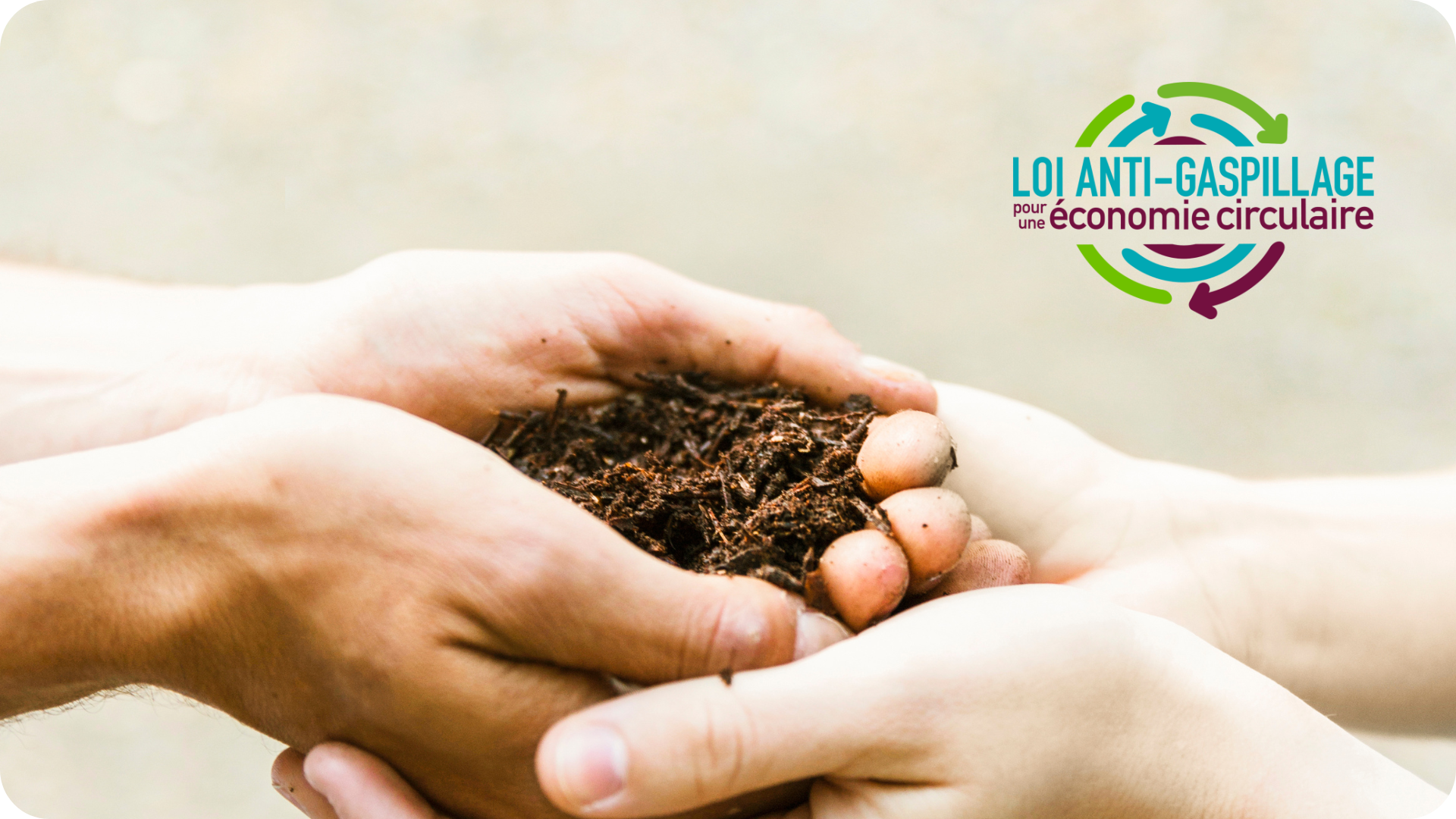Since 1950, 9.2 billion tonnes of plastic have been produced, and more than 600 million tonnes could be produced by 2025. Of these 9.2 billion tonnes produced, 79% become waste. Plastic pollution is a serious matter and the goal to reduce it has become one of the biggest environmental challenges.
Faced with this challenge, France has decided to take action by adopting the AGEC law, a series of ambitious measures designed to tackle the production of unnecessary waste and to encourage the production of more virtuous materials.
So what are the measures taken under the AGEC Act? What impacts could it have on V.BIOTECH? And how is it positioned in this new regulatory landscape?
The AGEC Act : in what context ?
- 460 million tonnes of plastic produced per year by 2022 ;
- Only 9% of plastic is recycled ;
- Plastic production and incineration generate 400 million tonnes of CO2 worldwide every year ;
- Between 5 and 13 million tonnes of plastic waste in the oceans every year ;
- 1 million plastic bottles are sold every minute ;
- 16 billion disposable coffee cups are consumed every year ;
- 66.6 kg of plastic waste produced per person per year in France ;
- By 2050, there may be more plastic than fish in the oceans.
These numbers underline the alarming scale of the global problem linked to the production and useof plastic. The overproduction of plastic, combined with a low recycling rate, is leading to the massive accumulation of plastic in our oceans, our ecosystems and our landfills, putting our environment at risk.
The anti-waste law for a circular economy (AGEC Act), published in 2020, is a crucial response to these environmental and climate challenges. It promotes the transition to a circular economy by setting an ambitious course: ending the marketing of single-use plastic packaging by 2040 through a series of measures spread over four five-year periods.
This law also covers four other major areas :
- Raising consumer awareness ;
- Fighting waste and promoting solidarity-based re-use ;
- Fighting programmed obsolescence ;
- Improving production practices.
By following these guidelines, the AGEC Act aspires to a future where every product is designed to minimise waste and encourage sustainability, where consumers are informed and responsible, and where natural resources are preserved for future generations. With the single vision of transforming our linear economy (produce, consume, throw away) into a sustainable and balanced circular economy.

Crucial steps towards a plastic-free future
To achieve this, the transition is taking place gradually, with reduction, reuse and recycling targets set by decrees and spread over four successive periods:
- 2021 to 2025 ;
- 2025 to 2030 ;
- 2030 to 2035 ;
- 2035 to 2040.
Each phase of this transition is characterised by prohibitions and changes that have a direct impact on our daily habits.
For example, the first 3R decree (2021-2025), currently in force, sets out three fundamental objectives:
- To reduce single-use plastic packaging by 20% by the end of 2025 (half of this reduction is to be achieved through reuse);
- To eliminate single-use plastic packaging deemed “unnecessary” by the end of 2025;
- To achieve 100% recycling of single-use plastic packaging by 1 January 2025.
Throughout the period covered by the decree, new rules, including bans, were gradually introduced to achieve the three targets set. These measures range from bans on straws, plastic cutlery and over-packaging, to promoting the roll-out of bulk devices and setting stricter standards for packaging recycling, where each measure aims to reduce our plastic dependence and encourage the adoption of sustainable alternatives.

V.BIOTECH’s position
In the transition towards a circular economy aimed at reducing the use of plastic, V.BIOTECH’s strategy offers innovative and sustainable solutions by fully exploiting the potentials of the highly valuable and renewable resources that are spent coffee grounds (SCG). The start-up plans to transform this coffee co-product into 100% biodegradable, recyclable and/or compostable biomaterials, through the manufacture of innovative biocomposites.
We are developing a diversified range of formulations to provide adapted bio-based materials and effective solutions for various industrial sectors such as packaging, car-equipment, interior and exterior fittings, as well as the medical field.
Faced with the aforementioned regulations which can be restrictive and costly for some companies, V.BIOTECH represents a strategic partner for them as they must find viable alternatives to plastic over the next fifteen years.
We are fully committed to a responsible and environmental approach, capitalising on the unique properties of spent coffee grounds to transform them into biomaterials. In this way, V.BIOTECH is actively supporting the transition towards bio-based products, in line with the trajectory defined by the anti-waste law for a circular economy.
Ongoing challenges
The AGEC act represents a major step forward in the fight against plastic pollution and the transition towards a circular economy, but it has encountered persistent challenges after 4 years of implementation.
Firstly in terms of cost. The transition to alternatives to plastic can be costly and require significant investment from businesses. Some industrial players may therefore be reluctant to adopt these changes, especially if they feel it could compromise their profitability in the short term.
Lack of enforcement is a major obstacle to the AGEC law, due to insufficient controls and too few penalties. Some say there is a real gap between what has been planned and the reality of enforcing the bans.
An equally crucial challenge lies in consumers’ receptiveness to new materials and changes in packaging. Consumer preferences, purchasing habits and perceptions of product quality can influence the adoption of alternatives to plastic. Public awareness and education are therefore needed to encourage acceptance of the new standards, as advocated in Axis 2 of the AGEC law, via product data (e.g. introduction of a single logo for sorting).
Although similar companies to V.BIOTECH are suggesting alternatives to plastic, there is still much progress to be made in terms of innovation and the development of new sustainable materials. The importance of research and development in this area is crucial to find effective and economically viable solutions on a large scale.
Conclusion
In summary, although the AGEC law and initiatives such as V.BIOTECH represent significant progress in the fight against plastic pollution, challenges remain to ensure a successful transition towards a circular and sustainable economy. These challenges require a holistic approach and collaboration between governments, businesses, consumers and stakeholders to find effective solutions that will benefit everyone in the long term!
Sources
- Consulter la Stratégie 3R pour les emballages en plastique à usage unique.pdf (ecologie.gouv.fr)
- Loi anti-gaspillage économie circulaire | Ministère de la Transition Écologique et de la Cohésion des Territoires (ecologie.gouv.fr)
- AGEC, Climat et Résilience | Ministère de la Transition Écologique et de la Cohésion des Territoires (ecologie.gouv.fr)
- La Pollution du Plastique dans le Monde en 10 Chiffres (jobimpact.fr)
- Loi AGEC : synthèse, impacts, obligations anti-gaspillage pour les entreprises | Big média | S’inspirer, S’informer, S’engager (bpifrance.fr)
- Pollution plastique : 5 chiffres qui donnent le tournis | TF1 INFO
- 20240206-bilan-loi-agec-zwf-fne-npims-at-sfe.pdf (zerowastefrance.org)
- Café de l’Espace des Sciences – Le plastique, histoire d’une relation toxique | Rennes Métropole | OpenAgenda
- Le plastique dans l’océan, quel impact sur l’environnement ? (greenoco.io)



